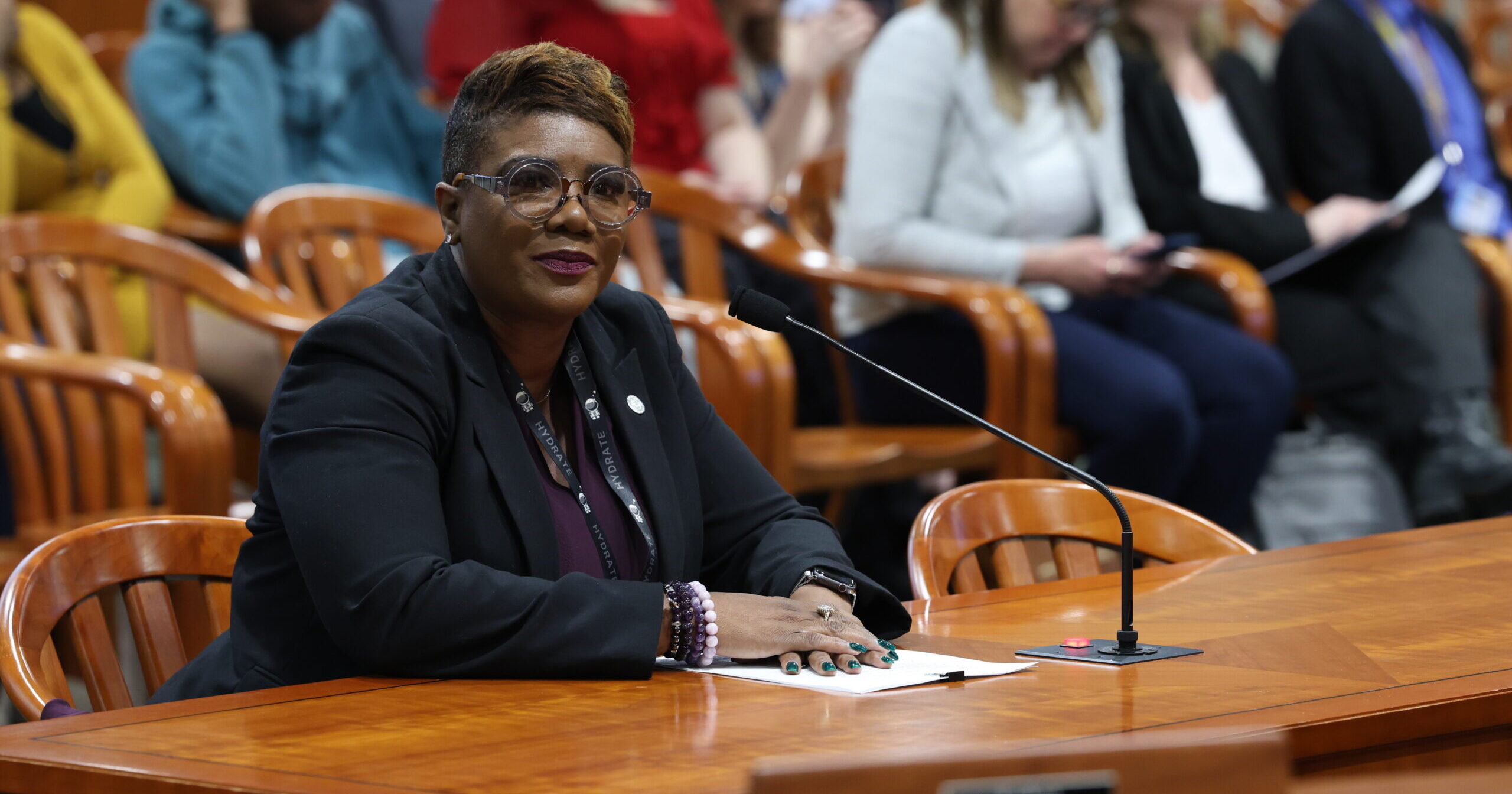LANSING, Mich., April 18, 2023 — State Reps. Felicia Brabec (D-Pittsfield), Cynthia Neeley (D-Flint) and Natalie Price (D-Berkley) introduced legislation last week, known as the “Check Your Heart” bill package, to help grow Michigan’s organ donor registry.
The three bills, House Bills 4362-64, aim to enhance and promote organ donor registration through a variety of mechanisms.
“One of the only opportunities Michiganders have to join the organ donor registry is during in-person driver’s license and state ID renewal appointments at Secretary of State offices,” said Brabec, sponsor of HB 4362. This bill package would provide an opt-in option for individuals to participate in the organ donor registry when filing taxes. “With the pandemic limiting in-person appointments throughout our state, many Michiganders are renewing their IDs online, where they are not asked to join the registry. The Check Your Heart Act will create more opportunities for Michigan residents to add their name to the organ donor registry and save lives.”
The COVID-19 pandemic negatively impacted organ donation rates and made it more difficult to find donors whose organs are eligible for successful transplantation. Also, access to hospitals was limited during that time, which presented challenges to monitoring potential donors and discussing the donation option with families.
“This bill is very important because it will help to save lives, so it was an easy sponsorship. I myself am a donor: I donated a kidney to my sister. Individuals in desperate need of organ or tissue donation can wait years to secure the donation they need. This legislation provides a new way Michiganders can register to become a donor,” added Neeley, who introduced HB 4363, which would allow inclusion on the donor registry of an individual who elects to be a donor on an income tax schedule. “The Secretary of State already provides convenient options for donation during vehicle registration, but this bill will give Michigan residents another great opportunity to consider if organ donation is right for them.”
Anyone can choose to become a donor regardless of their age, health or social history. Advances in medicine continue to allow more people to donate lifesaving organs, even those with diabetes, cancer or other serious illnesses. When an underage individual does register to become a donor, their parent or guardian makes the final decision.
“For every one person that signs up as an organ and tissue donor, 75 lives can be improved or saved. That is remarkable,” said Price, sponsor of HB 4364, which would allow disclosure of certain information related to the donor registry program. “There is a desperate need in Michigan for additional donors, and this commonsense legislation will make it that much easier for residents to sign up and help those in need of transplants.”
Gift of Life Michigan is a nonprofit, full-service organ recovery organization that acts as the intermediary between donors, physicians and hospital staff. It provides all services necessary for organ and tissue donation and transplantation.
“This legislation could be the one thing that helps push the Donor Registry to the next level,” said Dorrie Dils, president and CEO of Gift of Life Michigan. “There are 2,400 critically ill Michiganders waiting for a lifesaving organ transplant, plus another 16,000 are enduring dialysis and might benefit from a transplant. For all those who are waiting, we’re hopeful that this legislation can move quickly through the House and Senate.”
The bills have been referred to the House Health Policy Committee.

